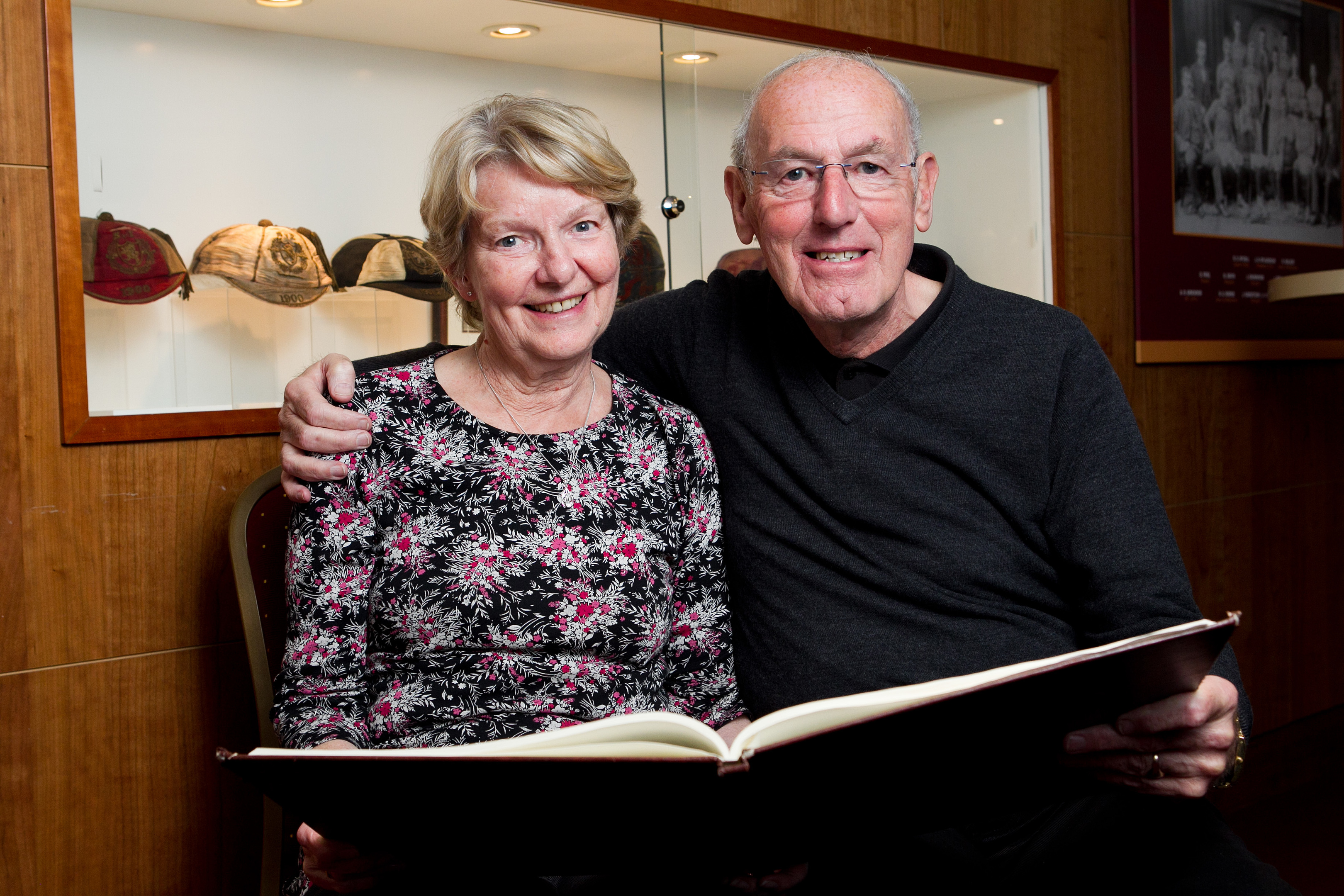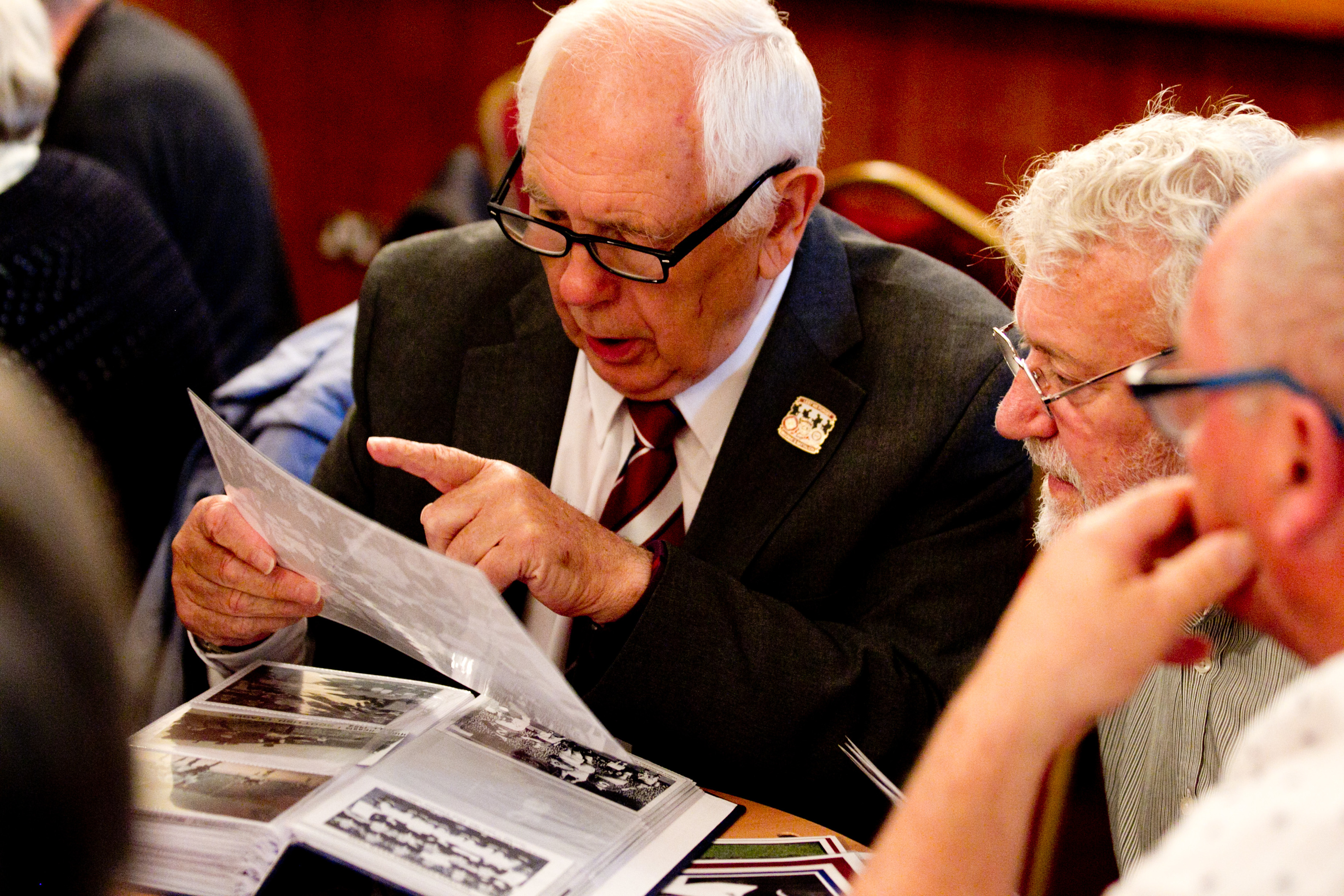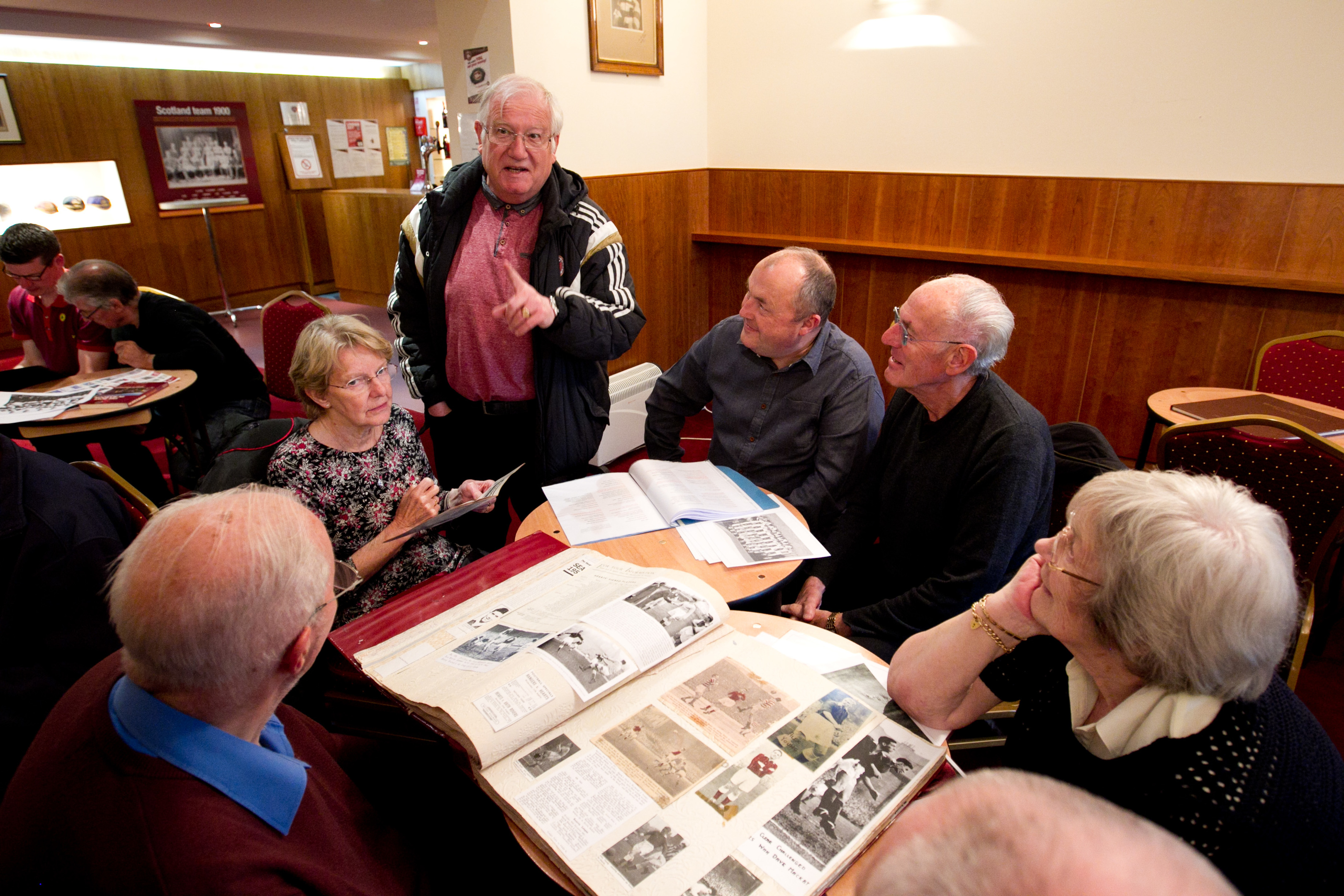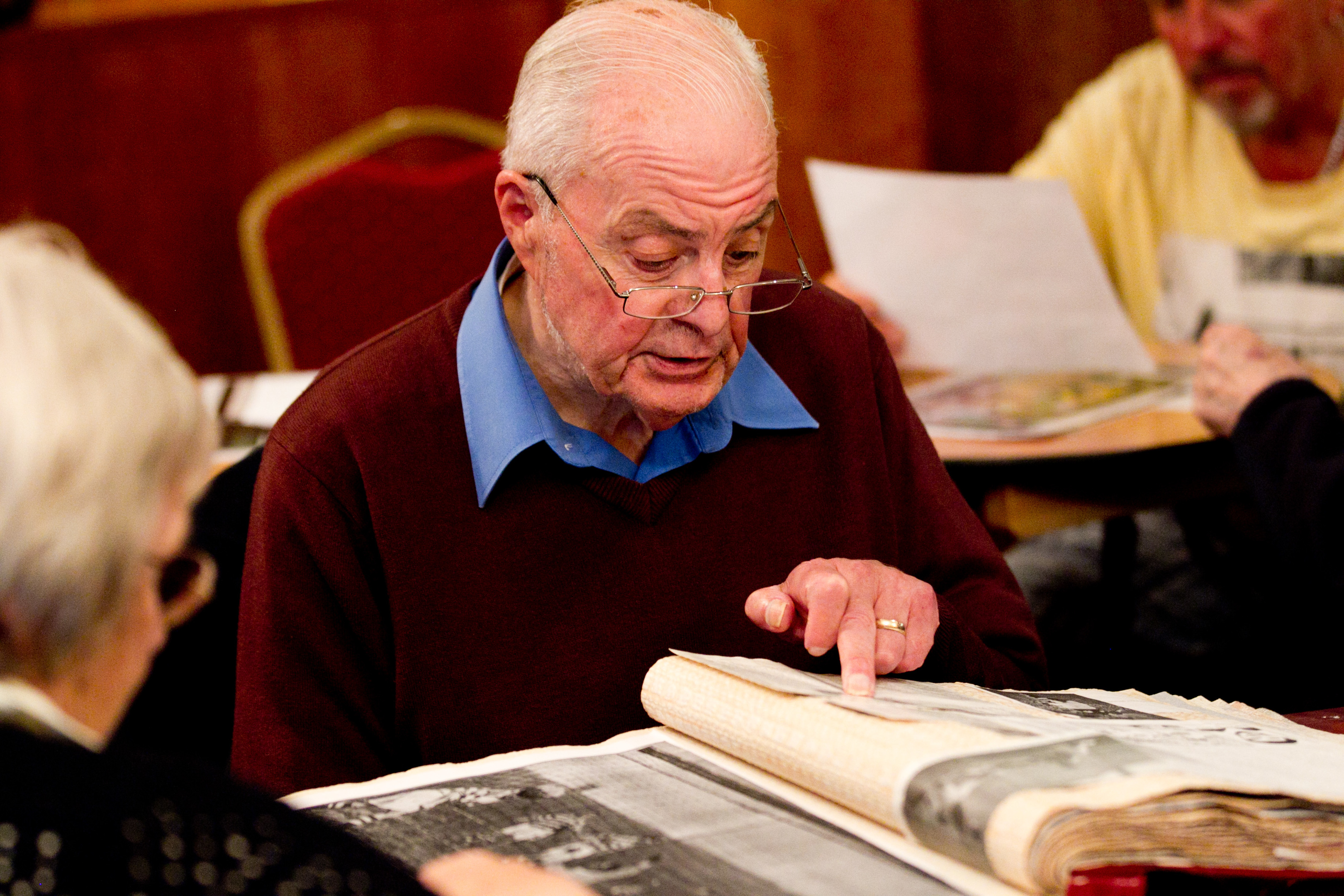
LAST minute goals, incredible saves and triumphs over your greatest rivals – they’re all part of what makes football so special.
For fans, these are memories that will last a lifetime but now they’re serving an even greater purpose by helping people deal with dementia.
Supporters living with the condition meet regularly with volunteers to look through their favourite team’s archive pictures and programmes in the Football Reminiscence Project. Not only does it get them out of the house and mixing with others, but it also stimulates their minds and often provides a boost.
There are currently 120 groups across Scotland – some hosted by football clubs, others held in places like halls and care centres – and the concept is continuing to grow and become more popular.
That’s evident at Tynecastle, where the Big Hearts Community Trust is just about to launch a second monthly football memories group in order to keep up with demand since starting two years ago.
The Sunday Post was invited along to their most recent get-together and the trust’s fundraising officer, Craig Wilson, says the impact of the project can be summed up by the wife of one of the attendees.
“She told me her husband’s a different person when he comes out of the group, that it injects new life into him,” Craig said.
Barbara and John Peacock agree.
They’ve been coming along to the Tynecastle group for two years and are in no doubt about the positive impact it has on their lives.
“John is always asking me when the next meeting is,” Barbara explained. “I see a real difference in his demeanour after he’s been here.
“It gets his brain going – he has a really good memory.”
John, 78, has frontotemporal dementia and was diagnosed six years ago.
“I never miss a session, it makes me feel good,” he said.
“Ex-players often come along to the group as well, which is great.
“I’ve been coming to Tynecastle ever since I was lifted over the turnstiles by my dad, and now my daughter and grandson go to the games.”
Alex and Agnes Turner are newcomers to the group and admit they’re still trying to process the dementia diagnosis Alex received last November.
“It was a real shock to the system for both of us because he’s so fit and healthy,” Agnes admitted.
Former policeman Alex, 72, said: “We’ve been encouraged to go out and join in with groups like this.
“I’m really enjoying it and there’s great banter.
“I’ve been coming to Hearts games since I was four and I’m still a season ticket holder, I never miss a game and my grandson comes with me now.
“When I was a police officer and I knew I had a shift on a Saturday, I would try to make sure I was posted to Tynecastle – I’d watch the pitch more than I’d watch the stands!”
The football memories sessions at Tynecastle last for 90 minutes and pies and tea are served halfway through.
“I’ll go anywhere for a pie and a cup of tea,” Alex Alexander laughed.
The 88-year-old has been attending the project with his son, Ally, for several months and the former Tynecastle postman agrees that it’s good for him and brings a lot of memories flooding back.
Michael White is behind the Football Reminiscence Project and manages it from Hampden Park. He’s also the historian for Falkirk FC.
“It came about by chance,” he explained.
“Men are notoriously hard to engage in care homes, so I was asked to visit a day centre with football memorabilia and I was amazed at how clear the men’s recollections were about games from decades ago when they struggled with day-to-day memories.
“They could remember what the weather was like at a game, how they travelled there, where they went for a pint and who scored the goals.
“This was in 2004. I then trialled it at Hibs and Aberdeen and in 2011 it became an initiative between the national stadium and Alzheimer Scotland.
“There are also groups for other sports like rugby, shinty and cricket, as well as movie memories.”
Former Scotland boss Craig Brown is a big supporter of the project.
“I went along to groups in Ayr and Kilmarnock with former Rangers player Johnny Hubbard and they were great experiences,” he said.
“It shows you the power of football.”
READ MORE
Memory Walks: Daughter who lost mum to dementia shares her reasons for joining a walk
Memory Walks: Game of Thrones star Kate Dickie shares details of her mum’s dementia

Enjoy the convenience of having The Sunday Post delivered as a digital ePaper straight to your smartphone, tablet or computer.
Subscribe for only £5.49 a month and enjoy all the benefits of the printed paper as a digital replica.
Subscribe

